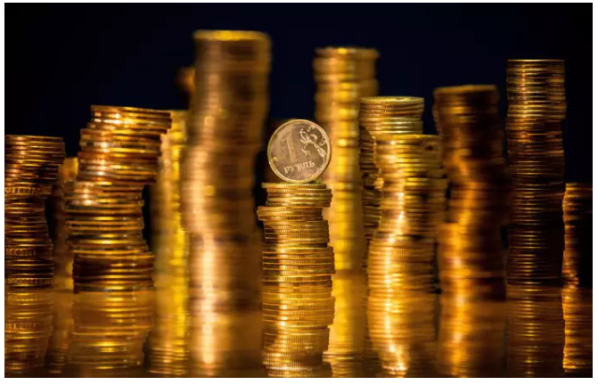
The Ukrainian foreign minister said over the weekend there had not been any recent diplomatic communications between Russia and Ukraine at the level of their foreign ministries.
“The continuation of active fighting and a clear stalling of negotiations is the main risk for Russian assets through the risks of new sanctions,” said Dmitry Polevoy, head of investment at LockoInvest.
By 1114 GMT, the rouble had gained 1.1% to 79.10 against the dollar after briefly touching 78.80, its strongest since April 12. Against the euro, the rouble firmed 3.3% to 82.60, a level last seen on April 8.
This week the rouble is expected to trade within the range of 79-82 to the dollar and 84-87 to the euro, Rosbank analysts said in a note.
Fluctuations in the rouble are artificially limited by capital controls that Russia imposed in late February as its financial sector and economy have taken a hit from unprecedented western sanctions designed to punish Moscow for sending tens of thousands of troops to Ukraine on Feb. 24.
The rouble can encounter some downside pressure from the central bank, which is expected to lower its key rate from 17% at its next board meeting on April 29.
Russian Central Bank Governor Elvira Nabiullina on Monday said the bank will not try to tame inflation by any means, as this would prevent businesses from adapting to the new reality.
Nabiullina also said the central bank was considering making the sale of foreign exchange proceeds by exporters more flexible.
Russian authorities ordered export-focused companies convert 80% of their revenue into roubles in late February as part of capital controls that Moscow imposed as the rouble headed to all-time lows amid unprecedented Western sanctions.
“Before the market and geopolitics stabilise, the full cancellation of capital control measures looks premature,” Promsvyazbank analysts said in a note.
This month, the rouble could see support from tax payments as companies are due to pay a record 3 trillion roubles ($37.50 billion) in taxes, for which some export-focused companies need to sell foreign currency, according to analysts surveyed by Reuters.
On the stock market, the rouble-based MOEX Russian index fell 1.9% to 2,380.2 points, while the dollar-denominated RTS index shed 0.7% to 948.5 points.
Russian shares in Petropavlovsk, which is also listed in London, outperformed the market by gaining 2.5% following massive losses last week after the company said it was considering putting itself up for sale in the wake of sanctions on Russia and the risk of countermeasures.
The MOEX index is expected to decline towards 2,250 points, Finam brokerage said in a note.
($1 = 80.0050 roubles)

Leave a Reply